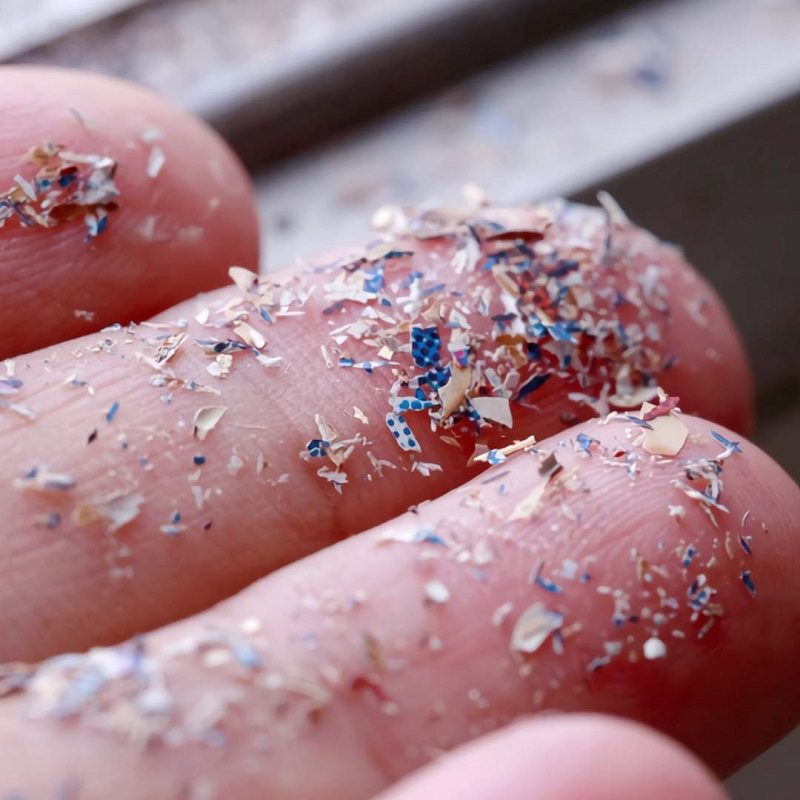Ban of single-use plastic pressed after gov’t study confirms presence of microplastics in Philippine marine waters
Press Release Date: November 9, 2021

The immediate ban of single-use plastic was pressed anew by marine conservation and fisherfolk groups following the release of a government study that found traces of microplastics in Philippine marine waters, with the highest concentration found in the Tañon Strait Protected Seascape.
“This government-led study is an affirmation of the warning and calls for action to stop plastics pollution at the sources, long aired to the government – the impact of microplastics contamination of our ocean is irreversible. These are ingested by our marine animals that will be taken in by the people as food. This will, in no time, put the health and survival of our people at risk. Unless the government bans single-use plastic now, the food security of our future generation will be in great peril,” said Atty. Gloria Estenzo Ramos, Vice President of Oceana.
Ramos is referring to the results of the study by the Coastal Resources and Ecotourism Research, Development and Extension Center (CRERDEC) of the Ecosystems Research and Development Bureau (ERDB) which confirmed the presence of microplastics in 10 study areas nationwide, with the highest density found in the Tañon Strait Protected Seascape in Badian and Moalboal, Cebu.
One of the largest and most productive Marine Protected Areas (MPAs) in the country, the Tañon Strait is a 161-kilometer strip dividing the provinces of Cebu and Negros Island.
“Nakakatakot na ang pangunahing pinagkukunan namin ng pagkain para sa aming mga pamilya ay maaaring malason ng plastik. Paano na kaya ang kabuhayan namin kung hindi na rin maaaring kainin ang mga hinuhuli naming isda? Nakakalungkot malaman na ang pinoprotektahan at inaalagaan naming mga mangingisda ay unti-unti namang sinisira ng basurang plastik. Ang karagatan ang nagbibigay sa amin ng pang-araw-araw na kita at pagkain, paano na ngayong may takot na tayo sa posibleng kontaminasyong dulot ng microplastics sa mga isda at iba pang lamang-dagat,” said fisherfolk leader Pablo Rosales, President of PANGISDA Pilipinas.
(I fear that the food we get is possibly contaminated by plastic. How do we survive if the fish that we catch for our income and livelihood are not anymore safe to eat? It is saddening to hear that the Tañon Strait we protected and cared for is slowly being degraded by plastic waste. The sea is where we get our income and food. The fear of microplastic contamination of fish and other seafood will affect all of us.)
The study also covered Manila Bay, Subic Bay, Lamon Bay, Boracay Island, Taklong Island National Marine Reserve, Davao Gulf, Butuan Bay, Iligan Bay, and the special area, Apo Reef Natural Park.
The Philippines is declared as one of the world’s largest polluters of oceans. A 2019 study conducted in central Philippines found contamination of rabbitfish and marine sediments with microplastics. Rayon, polypropylene, polyethylene terephthalate, and polyethylene were found to be the most abundant microplastics in marine sediments. Meanwhile, polypropylene, polyamide, polyethylene, and polyethylene terephthalate are most abundant microplastics in fish.
Meanwhile, in the 2019 report Plastic & Health: The Hidden Costs of a Plastic Planet by the Center for International Environmental Law (CIEL), it was explained that over 170 fracking chemicals used to produce the main feedstocks for plastic have known human health impacts, including cancer, neurological, reproductive, and developmental toxicity, impairment of the immune system, and more.
Youth leaders, fisherfolks, local government units and non-government organizations including Oceana have continued to call on the government to implement the Ecological Solid Waste Management Act (RA 9003). However, more than two decades after taking effect, the law has largely been neglected by the government.
Under RA 9003, one of the duties of the National Solid Waste Management Commission (NSWMC) is to issue yearly the list of Non-Environmentally Acceptable Products and Packaging, which by definition should include single-use plastics and will result in the banning of these from manufacturing, importation, distribution, use and post-use.
“We could have prevented this catastrophe had the government performed its duties to the people when RA 9003 became effective. The government and stakeholders must act now, as these are already all over in the environment, from our marine waters and even in the air we breathe and the food that we consume,” said Ramos.
Oceana is an international advocacy organization dedicated to protecting the world’s ocean. Since 2014, Oceana has been working closely with national and local agencies, civil society, fisherfolk and other stakeholders to restore abundance of Philippine fisheries and marine resources.
For More Information:
Joyce Sierra, Communications Manager, Oceana
Mobile: 09178214430 E-mail: jsierra@oceana.org
Facebook: www.facebook.com/oceana.philippines Twitter: @oceana_ph Instagram: @oceana_ph
